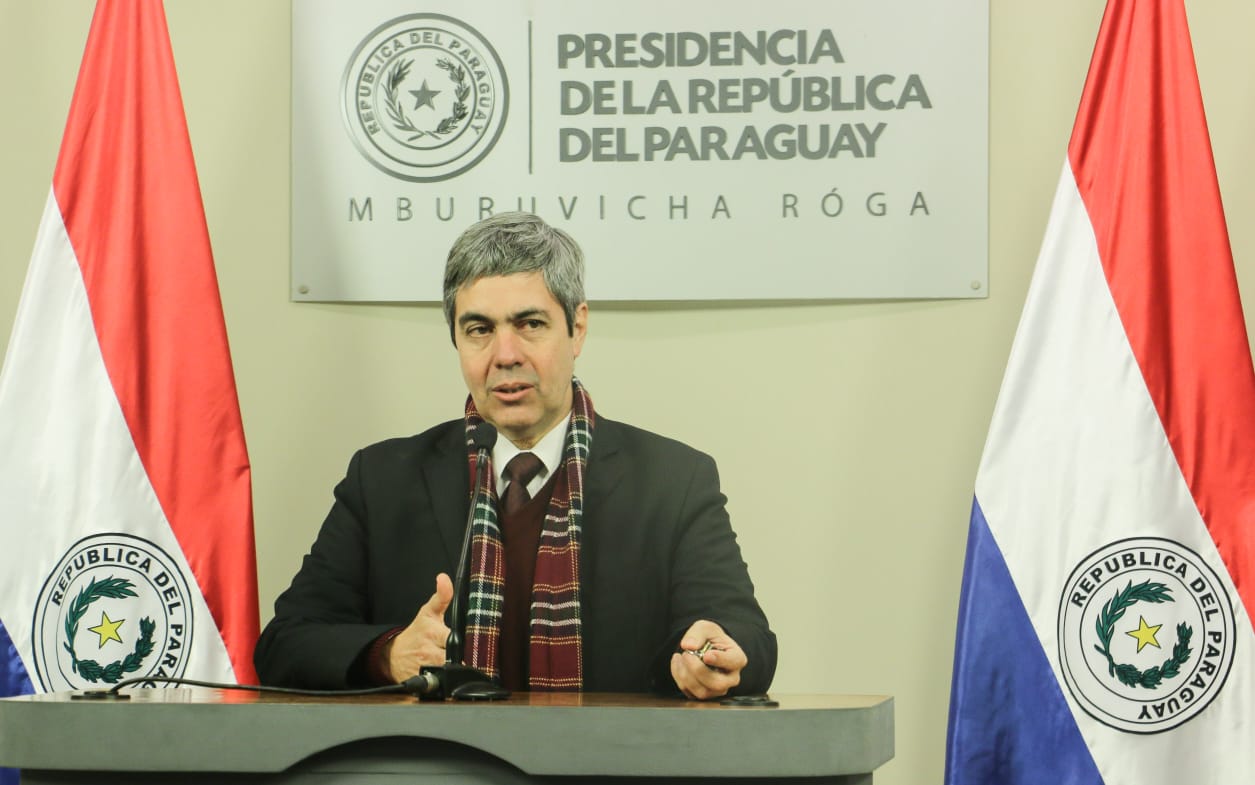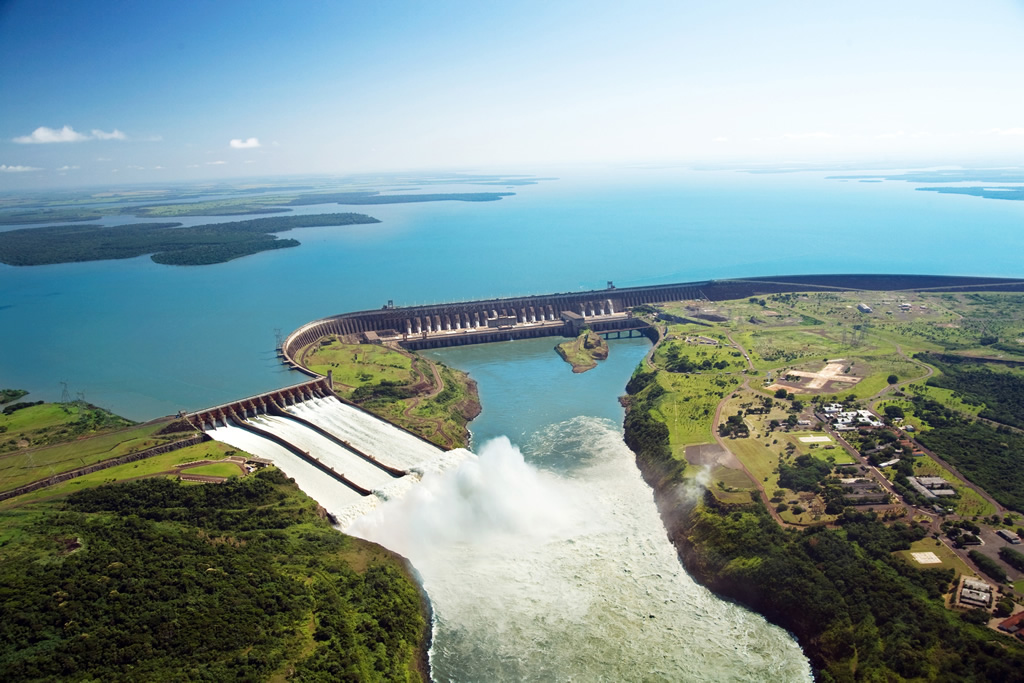RIO DE JANEIRO, BRAZIL – Undoubtedly, the discussion within the framework of the renegotiation of Annex C of the Itaipu Treaty focuses on reducing or maintaining the current tariff of Itaipu Binacional.
The first proposal is that of the Brazilian Government, which although not official so far, there are strong insinuations that this will be the approach of the neighboring country; and the second is that of Paraguay, the most beneficial for our country due to the economic injection of close to US$ 1,000 million per year that may be received and the inability to be able to use 100% of the energy that corresponds to us.
The negotiation of Annex C is a little more than a year away. Still, the Paraguayan negotiators’ criticism and questioning are becoming more frequent due to the tranquility, slowness, and secrecy with which they are handling the situation.
Considering the importance of the renegotiation of Annex C of the Itaipu Treaty for Paraguay, La Nación offers a technical view through a series of materials published daily since last Monday. The intention is to provide the reader with detailed information on how progress has been made so far and how Paraguay stands with a view to the negotiations that will take place in August 2023.

Engineer Pedro Ferreira stated that it is necessary for the Government of the President of the Republic, Mario Abdo Benítez, to put an end to the “secrecy” in the negotiations with Brazil on the cost of the Itaipu Binacional tariff and on the strategies that will be applied with a view to the revision of Annex C of the entity’s Treaty in 2023, taking into account that the Government of Jair Bolsonaro advances in its pretensions through faits accomplis.
“It is wrong for them to maintain secrecy. Here some people want to be trusted blindly, but so far, they did not give clear signs that they can be trusted and that they are going to have a winning strategy. The only strategy that worked is that all the Paraguayan people considered a national cause and made Brazil see that they got out of hand in the absurdity that the Government had signed concerning the so-called secret pact that motivated the proposal of an impeachment trial against Mario Abdo Benítez and Vice-President Hugo Velázquez”, he asserted.
GOODWILL OF BRAZIL
The former head of Ande implied that the Brazilian Government sees Paraguay as a negotiator without strategies that does not motivate it to force it to establish talks to reach a fair agreement for both parties.
“If nothing is done and you just wait for the goodwill of the President of Brazil, it is a bad way; when you sit down to negotiate something, it is not that you are going to get everything you want, before that the duty must be done so that Brazil feels the need to negotiate with Paraguay. As they see that we are not doing anything about it, the Brazilian Government feels free to go the way of the fait accompli”, he said.
In this regard, the engineer insisted that the negotiations on the binational should be declared as a national cause that could motivate citizens to demonstrate, to take to the streets if there is a risk that Paraguay will end up at a disadvantage.
“No one should sit down to negotiate with others if they have no alternatives. All Paraguayans must manifest that Itaipu is a national cause. The people on this issue promise a lot, but they do nothing, and we fall back into the same mistakes”, questioned the specialist.
MAIN STRATEGIES
On the other hand, the engineer pointed out that the main strategies that Paraguay should analyze to negotiate with Brazil are not only limited to declaring the situation as a national cause but also that once the payment of the debt contracted by Ande with Itaipu Binacional is finished, all the benefits should be divided in 50% for each country.
He also added that another point is that the current generation of young people should benefit from abundant, renewable energy through good use of the resources of the next decade, establishing the rational, responsible, and serious use of the energy bond equivalent to 350 million MW/h “that is at stake”.
At the same time, Ferreira added that there must be a commitment on the part of the National Congress to promote laws that allow the transparent use of the benefits, a better targeted social tariff, electric mobility, the change of the matrix of productive use in irrigation and electric energy industries with an emphasis on the use of energy for job creation. The accounting normalization of Itaipu should also be carried out and, finally, comply with Annexes A, B, and C, as well as the Treaty of the binational entity itself.

PRICE NEGOTIATIONS
Regarding the negotiations on the price of the tariff to be defined this year, the former President of Ande referred that everything points to Brazil achieving its objective, that of reducing the cost of the tariff, as opposed to the Paraguayan position, that of maintaining the price since it is part of one of the main points of Bolsonaro’s campaign with a view to the presidential elections in Brazil. “This is heading towards that unless we comply with the lines we proposed. The current Brazilian Government is too committed to its electoral promise to lower the cost of energy. Here the Brazilian Government will try with its fait accompli policies and will also initiate a series of pressures,” he assured.
PROVISIONAL TARIFF
As an example, the engineer Pedro Ferreira mentioned the announcement made at the end of last year by the institution that regulates the electricity supply in Brazil, the Electric Energy Agency (Aneel), which was established through a provisional tariff a drop of 11.89% of energy. “The first fait accompli that took place in these days was that it was considered that the resale tariff of Itaipu’s energy in the Brazilian system had to go down. They indeed put the label of provisional, but it already generates a restriction to future negotiations”, said the expert.
LATE REACTION TO BRAZIL’S INTENTIONS
Ferreira also questioned the fact that the Paraguayan position had been kept secret.
Pedro Ferreira regretted that Paraguay only made known in October and November its position of continuing to maintain the cost of the entity’s tariff at US$22.6, taking into account that Brazil had already announced its intention to lower it three years ago. He also questioned the fact that the Paraguayan position had been kept secret.
“The Brazilian general director of Itaipu himself had announced eight months ago that he would lower the tariff and that it would no longer be imperative to revise Annex C, so the current situation is that due to the Government’s negligence, the impossibilities or for some other reason, we have a problem of lack of definition. Here, the Paraguayan position of maintaining the tariff at US$22.6 was kept secret, nobody knew, and if the Brazilian Government said three years ago that the price of the tariff should be lowered, Paraguay should not have gone only at the end of last October to state its position of maintaining it”, he said.
Finally, Ferreira commented that “I agree that, today, we must support the position of the Paraguayan government, but it lacks the commitment that if the funds are obtained, they will be used with transparency and honesty”.
With information from La Nación

